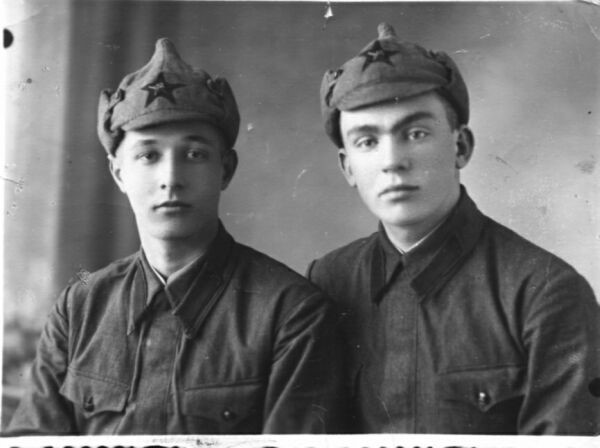Mikhail Sheidin was born in 1922 in the town of Velikie Luki, in northwestern Russia. Velikie Luki hald not been included to the so-called Pale of Jewish settlement, but was located several kilometers east of the Pale. For this reason the first Jewish community in this town emerged only in the late 19th century. Sheidin's maternal great-grandfather Abram Iahudin was the first leader of this community. Mikhail's father Iankel (Iakov) Sheidin was a doctor in Velikie Luki. In 1940, Mikhail graduated from a 10-year school and, a short time later, in October, was drafted into the Red Army. As a young man with a complete secondary education and technical aptitude, he was assigned to a Soviet military topographic unit (MTU).
Sheidin's MTU took part in the Soviet annexation of the Baltic states in 1940, as well as in the Sovietization of eastern Poland, that had been annexed to the USSR a year earlier. Since the Red Army did not rely on the maps prepared by the armies of the Baltic states or by the Polish army, the MTUs had to remap the annexed territories. Sheidin did such work first in Lithuania, then in the area of Białystok, in what had been prewar Poland. In February 1941, he was transferred to the 262nd Artillery Regiment, that was stationed near Bielsk Podlaski and was sent to an artillery course. In June, his regiment was moved westward, to the area of Łomża.
On June 22, 1941 the German-Soviet war began and the Germans attacked the Białystok salient in this border area. Sheidin's artillery regiment was placed on alert but on the first day of the war, rather than participating in combat, the soldiers dug trenches, prepared their cannons, etc. On the next day, at 4-5 a.m., the regiment began defending the town of Kolno, which the Germans were attempting to capture with tanks. The Red Army soldiers were poorly equipped: they even lacked helmets and cannon shells and had no food at all. Later on that day, when Mikhail's unit was changing its position, it was attacked by German planes. Three soldiers were killed, including Sheidin. He was buried close to the road, together with the other victims. Thus, Misha's life ended on the second day of the war. Obviously, he had had no time to earn any military awards.
The 10th Army, to which the 262nd Artillery Regiment belonged, was virtually annihilated by the Wehrmacht in the Minsk-Białystok Cauldron in June and July 1941, with only a few of the regiment's soldiers surviving. Mikhail Sheidin's parents survived the war. They died in the 1960s.







